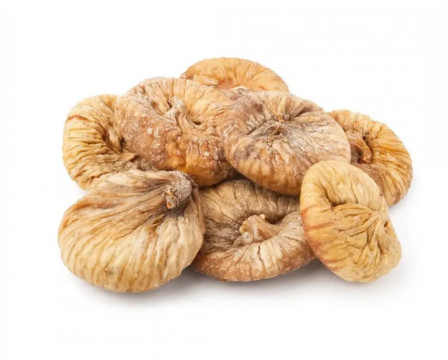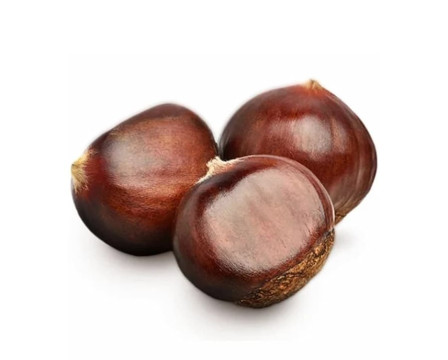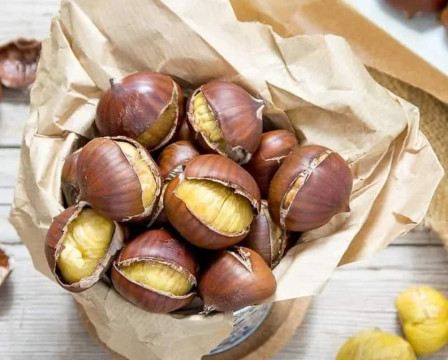Dried Fruits
Dried fruits history dates back to ancient times. As per different narratives, the first fruit drying process dates back to approximately 4000 years BC in the Levant and Mesopotamia. Dried fruits are types of fruits that have undergone the removal of the majority of its contents of water wither naturally (by drying them with air or under the sun) or via the usage of specialized drying techniques for this purpose.
Dried fruits have got a wide popularity due to their delicious taste in addition to long-shelf-life in comparison with natural fruits as well as maintaining their high nutritional value after drying, at all times, as if you’re eating them in their ripe time.
Nowadays, consuming dried fruit started getting momentum and spreading wide on a large scale on top of which are grapes (raisins), followed by apricots, figs, peaches, apples, pears, cherries, and strawberries.
Dried Fruits Aid Turkish Economy
Turkish exports of dried fruits has reached during the first half of 2022 a sum of US 755.9 million.
According to the Southeast Anatolian Exporters Association (Güneydoğu Anadolu İhracatçı Birlikleri), dried fruits exports soared by an amount of 10.6% compared to the same period of 2021 where Turkish raisins ranked first by US 208 million, followed by dried Turkish apricot US 168 million, then dried figs US 103 million.
As regards to importing countries, Germany came first on the list of importers by US 103 million, followed by Britain US 75 million, while USA ranked third.
Most Widespread Dried Fruits
- Dried raisins
- Dried dates
- Dried apricot
- Dried prunes
- Dried figs
- Dried apples
- Dried bananas
- Dried mango
- Dried pineapples
Dried Fruits Benefits for the Health
Dried fruits are considered one of the nutritional substances that are good for health at all age levels as it contains all basic minerals and vitamins. Pregnant women are recommended to eat them for a good and peaceful pregnancy period. Some of these benefits are:
- Dried fruits are rich of many nutritional elements that can boost bones health. They contain protein and micronutrients such as phosphorous and boron that are considered vital elements for osteoporosis patients.
- Dried fruits contain abundant amounts of insoluble fibers that prevent blockage of coronary artery and assist minerals, like potassium, regulate blood pressure.
- Dried fruits boost the sound movement of the intestines, disinfecting and softening them, as well as they’re considered an effective constipation treatment especially for women in the last stages of pregnancy
- Dried fruits are rich in proteins that renders a person feeling full in addition to containing natural sugars that assist overcome the desire to eat sweets, therefore, they’re beneficial in maintaining an ideal and healthy weight.
- Dried fruits supply elements that play a vital role in strengthening the immunity system to fight diseases.
- Dried fruits secure the body’s nutrition and that is automatically back thrown on the skin and complexion, therefore, pigmentations are minimized and the complexion is totally fresh and hydrated.
- Dried fruits are good for the eyes health as they contain a big amount of vitamin A that protects the eyes from damage and against different diseases such as night blindness.
- Dried fruits are rich of zinc that the body needs for sound communication between neurotic cells as well as they are rich in minerals that can boost memory and increase concentration.
Dried Fruits Calories & Nutritional Values
Dried Apricots
5 or 6 pieces of dried apricots contain 96 calories, 20 g carbohydrates, 21 g sugar, and 3 g fibers. This fruit provides the body with antioxidant beta-carotene which protects the cells on the long run.
Raisins (dried grapes)
Calories 302 cal. , carbohydrates 80 g, fibers 4 g, sugar 59 g, and protein 3.4 g.
Dried figs
5 pieces of dried figs contain 105 calories, 27 g carbohydrates, 4 g fibers, and 2 g sugar.
Prunes (dried peaches)
4 pieces of peaches contain 91 calories, 14 g sugar, 24 g carbohydrates, and 3 g fibers. It is very beneficial for those who suffer constipation according to a study conducted by Kings College, London.
Dried Pineapples
Two rings of strawberries contain 140 calories, 35 g carbohydrates, 1 g fibers, 32 g sugar, and 7 g added sugars. Strawberries of all types is considered a rich source of anti-inflammatory "Bromelain”, but be careful of added sugars as some types of dried pineapples found in the markets contain large amounts of sugar.
Benefits of Dried Fruits on an Empty Stomach
Having dried fruits on an empty stomach have got many benefits such as:
- Dried fruits when eaten in the morning provides the body with a lot of required nutritional substances such as potassium, magnesium in a multiple form.
- Dried fruits on an empty stomach may maintain colon’s health as they contain large amounts of probiotics.
- Dried fruits on an empty stomach improves the diet as it is proven that people who consume it on an empty stomach would take less amounts of fats and added sugars compared to others.
Some Dried Fruits You Have to Avoid
- Dried fruits types that have been covered with sugar or dried using a sugar solution.
- Varieties that have been added with chemical substances to enhance its color therefore it is recommended to choose the slightly brownish or pale-colored fruits that have been dried following the traditional ways.




